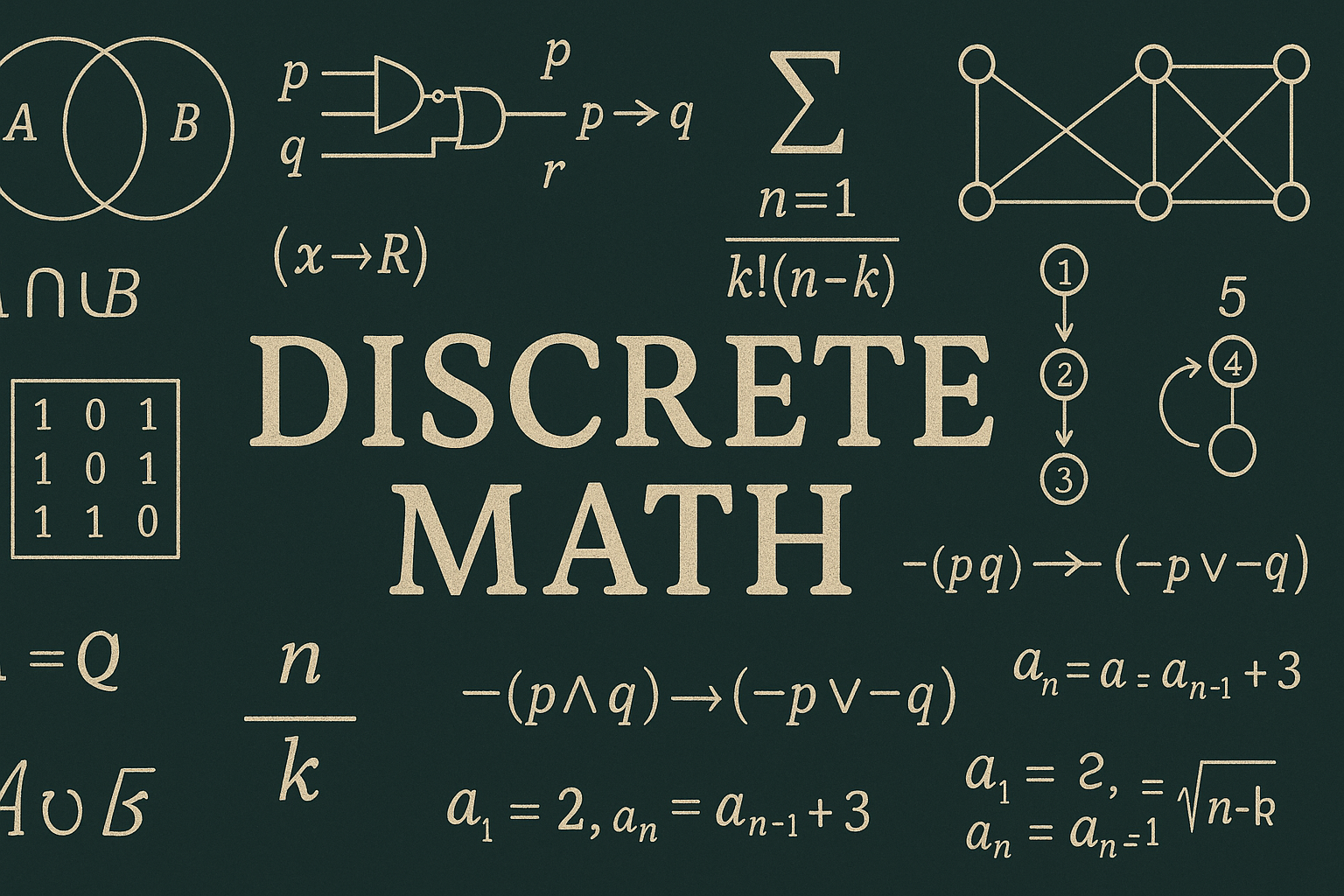
This course offers a comprehensive introduction to the fundamental concepts of discrete mathematics, which form the theoretical foundation of computer science. Designed for undergraduate students in computer science and related fields, the course emphasizes mathematical rigor, logical thinking, and abstraction—skills essential for analyzing and designing algorithms, developing software, and understanding the deeper workings of computation.
Topics covered include propositional and predicate logic, methods of proof (including direct, indirect, and mathematical induction), set theory, relations and functions, combinatorics, recurrence relations, number theory, and graph theory. These topics are explored not in isolation, but with continuous reference to their relevance in computer science, such as logic circuits, algorithmic complexity, data structures, cryptographic systems, and network design.
Students will learn how to construct formal arguments, analyze the correctness and efficiency of algorithms, and model real-world problems using discrete structures. The course develops not only technical proficiency but also a disciplined mathematical mindset, empowering students to approach computational problems with clarity, precision, and creativity.
By the end of the course, students will have a solid grasp of the discrete structures that underpin modern computing and will be well-prepared for more advanced courses in algorithms, theory of computation, artificial intelligence, and beyond.
- Teacher: محمد جميل محمود ابو ريدي _
